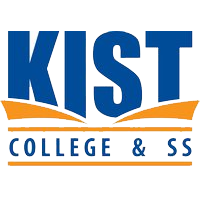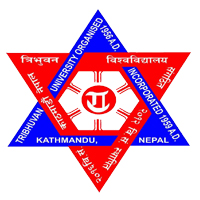Overview
MSc Chemistry at Central Department of Chemistry, Tribhuvan University (TU), Kirtipur, Kathmandu, Nepal
Course Overview:
The Master's Degree in Chemistry (M.Sc.) offered by the Central Department of Chemistry is a two-year program that provides students with comprehensive knowledge and practical skills in the field of Chemistry. The program emphasizes both theoretical and laboratory work, allowing students to gain a deep understanding of the subject.
Course Outlines:
The M.Sc. Chemistry program consists of two parts. In the first part, students cover theory and laboratory works with a total of 500 marks. The second part involves theory, laboratory work, and/or a dissertation, also totaling 500 marks. During the second year, students have the option to specialize in one of three streams: Physical Chemistry, Organic Chemistry, or Inorganic Chemistry. Additionally, elective subjects such as Spectroscopy, Nuclear Chemistry, Natural Product Chemistry, and Food Chemistry are available.
Duration: 2 years
Objectives:
- To provide students with advanced knowledge and practical skills in Chemistry.
- To develop critical thinking, problem-solving, and research abilities.
- To foster specialization in specific areas of Chemistry.
Eligibility:
Candidates seeking admission to the M.Sc. program must hold a B.Sc. degree with a major in Chemistry from Tribhuvan University (TU) or an equivalent degree from a recognized university. They must also qualify in the Entrance Test conducted by the Department. For admission to the Ph.D. program, candidates must have an M.Sc. degree in Chemistry from TU or an equivalent degree recognized by TU.
Learning Outcomes:
Upon completion of the M.Sc. Chemistry program, students will:
- Have a comprehensive understanding of fundamental concepts in Chemistry.
- Possess practical skills in laboratory techniques and experimentation.
- Be able to critically analyze and interpret scientific data.
- Demonstrate proficiency in specialized areas of Chemistry.
- Exhibit research and problem-solving abilities.
Scope:
The M.Sc. Chemistry program prepares graduates for various career opportunities, including:
- Research and development positions in industries related to chemicals, pharmaceuticals, and materials.
- Teaching positions in academic institutions.
- Analytical and quality control roles in laboratories.
- Environmental and forensic science careers.
- Pursuing further studies at the Ph.D. level.
Fees Structure:
For detailed information about the fees structure, please contact the administration office of the Central Department of Chemistry, Tribhuvan University.
Career Prospects:
Graduates of the M.Sc. Chemistry program have promising career prospects, including opportunities in research institutions, industries, academia, and government organizations. They can work as:
- Research scientists or analysts in chemical and pharmaceutical industries.
- Professors or lecturers in universities and colleges.
- Quality control officers in manufacturing companies.
- Environmental analysts or consultants.
- Scientific officers in government agencies.
Career Options:
The M.Sc. Chemistry program opens up diverse career options, including:
- Chemical research scientist
- Analytical chemist
- Pharmaceutical chemist
- Forensic scientist
- Environmental scientist
- Academician
- Quality control specialist
Why Choose this Course:
- Gain in-depth knowledge and expertise in the field of Chemistry.
- Develop practical skills through laboratory work and experimentation.
- Open doors to diverse career opportunities in industries, academia, and research.
- Contribute to scientific advancements and research initiatives.
- Benefit from collaborations with international institutions.
Scholarships:
Information regarding scholarships for the M.Sc. Chemistry program can be obtained from the administration office of the Central Department of Chemistry, Tribhuvan University.
For more detailed information about the M.Sc. Chemistry program, including admission criteria, curriculum, and specific requirements, interested individuals are encouraged to contact the Central Department of Chemistry, Tribhuvan University.
Contact Central Department of Chemistry's administrative office for detailed information on the MSc in Chemistry course, including fees, scholarships, facilities, counseling, eligibility criteria, etc.

















